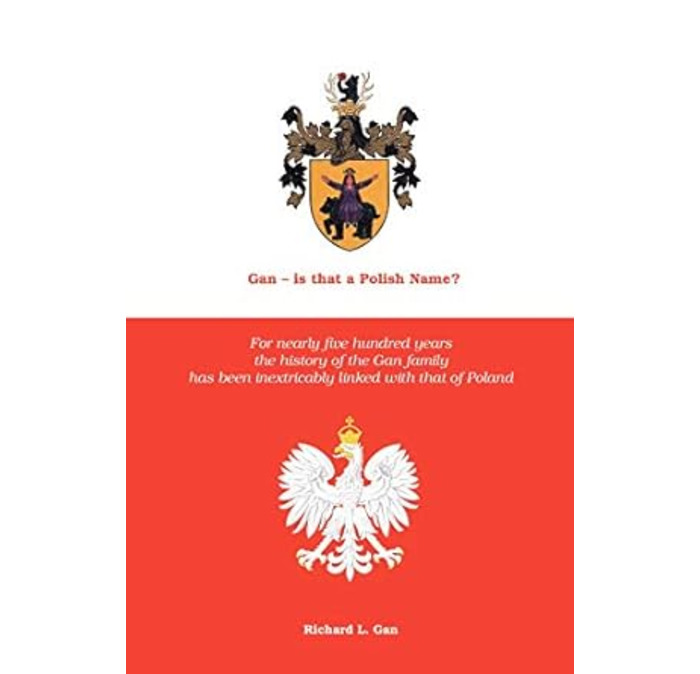Gan - is that a Polish Name?
By Richard Gan
SKU: 9780853185901-
DESCRIPTION
After fourteen generations stretching back nearly five hundred years this question is still being asked today and, despite any rumours to the contrary, the name has never been abbreviated.
In fact, the family name was originally Von Hahn, that quickly developed into Hahn, and then to Han in which form it remained for some 200 years. The occupation of Poland by Russia was completed in 1795. The sound ‘H’ does not exist in Russian, and hence the letter ‘G’ was substituted, with the result that Han became Gan.
The book tells the story of a branch of an ennobled Polish family which includes amongst its members: mercenaries, landowners, farmers, a revolutionary fighting for the cause of Polish freedom against the Russians, a hero murdered by the Soviet NKVD, a political exile, and a Polish-Yorkshireman.
Most readers will be un-familiar with Polish history which is complex and contains a number of unique features not found elsewhere in western Europe. As the history of the family is so inextricably entwined with that of Poland, detailed background information and context have been incorporated to help provide a meaningful social history, rather than the simple reiteration of a family tree, albeit one with over 650 individual entries.
The Gan family saga begins in Germany in the early 16th century, after which it moves swiftly through what is known today as Latvia, has a sojourn of some 300 years in the former Duchy of Lithuania in the north-east part of the Polish-Lithuanian Commonwealth, a relatively short stay in south-east Galicia, deportation to Siberia, followed by an epic journey via the Middle East and Italy finally arriving in England immediately after the end of the Second World War.
The answer to the original question is unequivocal:
Yes – Gan is a Polish Name – and one to bear with pride!
-
THE AUTHOR
-
CUSTOMER REVIEWS


